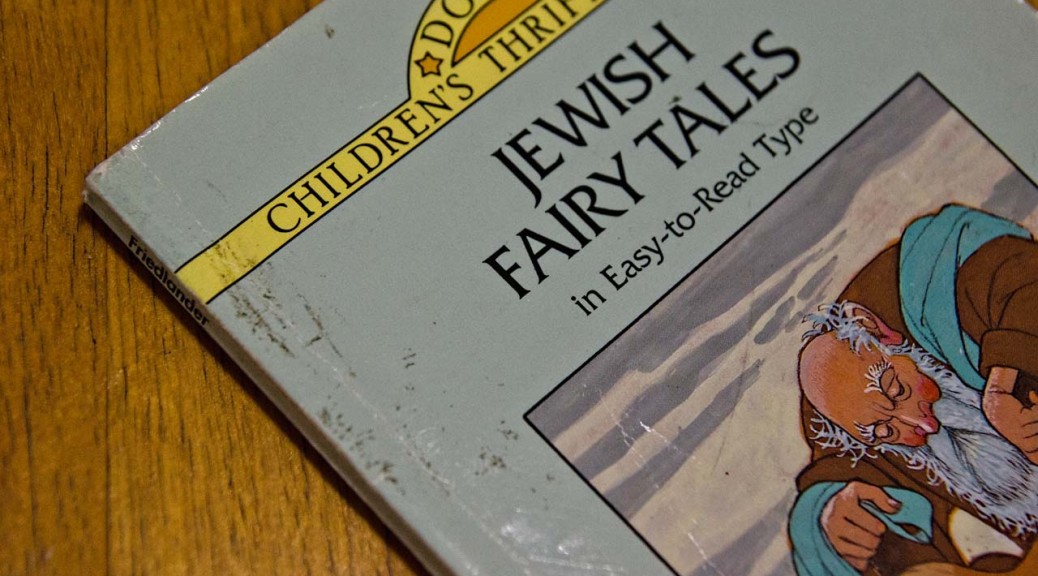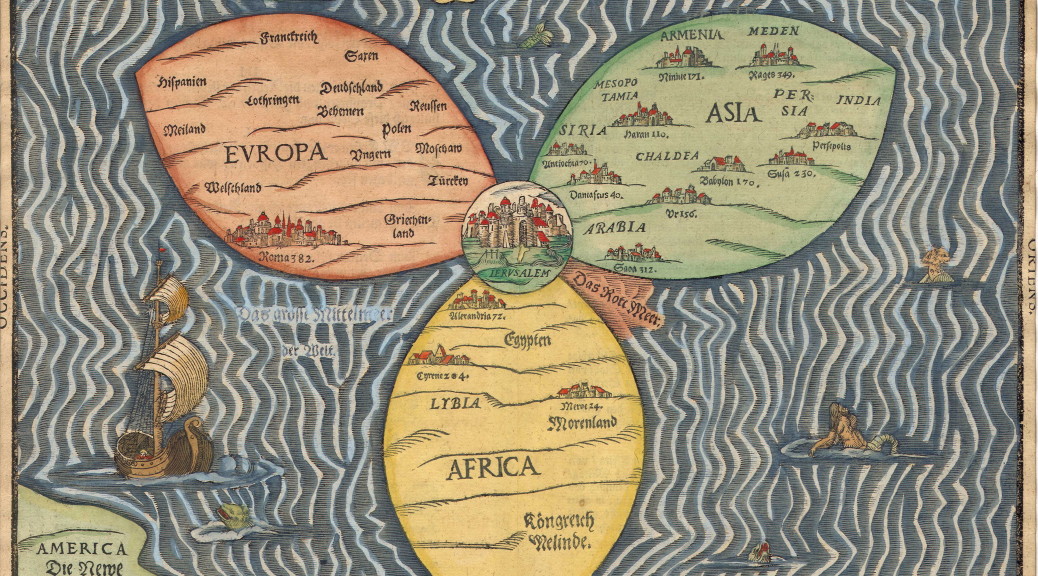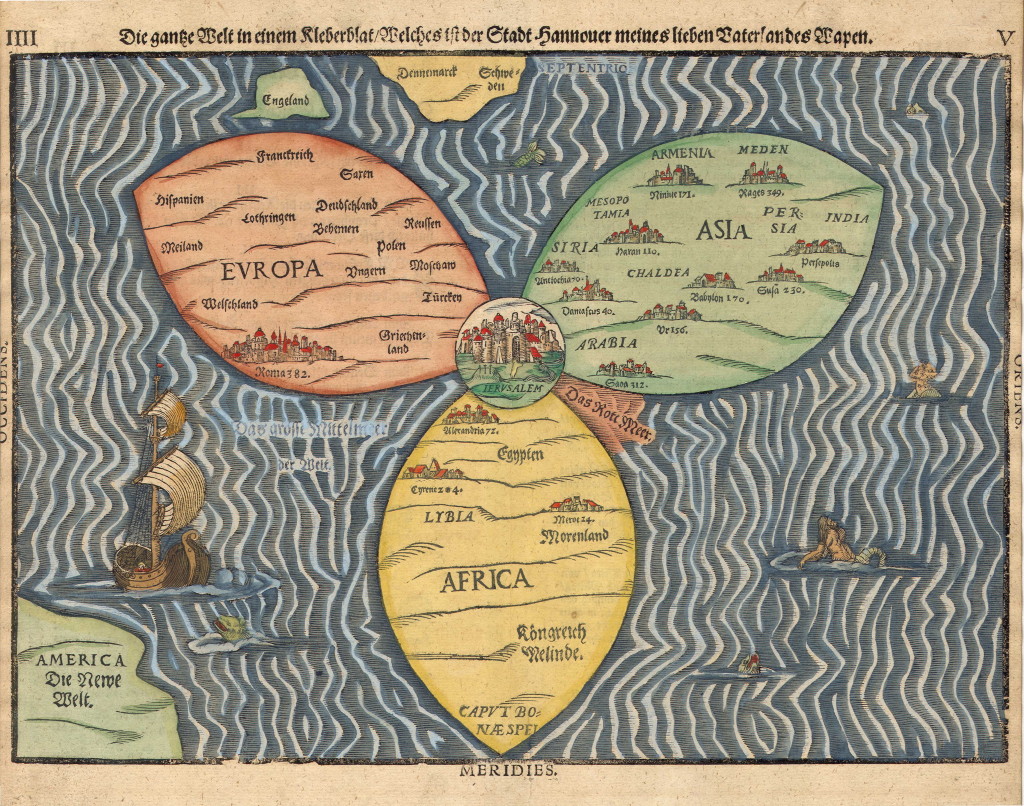Friedlander, Gerald. Jewish Fairy Tales. Mineola, NY: Dover, 1997. Print.
Chanina and the Angels

Priest, High Priest, and Levite, illustration from the 1890 Holman Bible. Via Wikimedia.
The Demon’s Marriage
The Magic Leaf
‘Visitor: “I brought the dead fox back to life. I am a holy man and I can revive the dead.”
‘Farmer: “You are a foolish chatterbox. If what you say be true, take my advice and do not meddle with the mysteries of life and death. God alone will quicken the dead. Now, farewell.”‘ p. 25
“the holy man went on his way, thinking that God had given him such a wonderful treasure because he had lived such a holy life.” p. 25, 27.
“The next instant, as the holy man began to regret his extreme folly in restoring the dead lion to life, the latter sprang upon him and devoured him. The lion also ate the magic leaf.” p. 27
The Princess and the Beggar
“Behold,” he cried, “with this ring do I betroth thee unto me and marry thee according to the Law of Moses and Israel, God and His angels Michael and Gabriel being our witnesses.” p. 34
The Castle in the Air

Henry Justice Ford – How Ahikar Outwitted the King of Egypt. Via Wikimedia.
“He then called together all the old and learned men, including the stargazers and magicians.” p. 38.
“Achikar let the eagles out of their cages. He tied the lads on their backs and also tied the ropes to the feet of the eagles and let them go up in the air. They soared upwards, till they remained between heaven and earth. Then the boys began to shout, saying: “Bring bricks, bring clay, that we may buid the King’s castle in the air.” p. 44
“Thou art indeed mad, Achikar. Who can bring up sand, bricks and clay to thy builders up there between heave and earth?” said the King in a temper.
“How then, my lord King! Shall we build a castle in the air? I have prepared all the plans and yonder in the air are the special builders. All they need is the material.” p. 45
“Give him my greetings and tell him I shall never again ask forsuch an impossible thing as a castle in the air. We must learn to be satisfied with such things as are possible and right. Farewell, wise Achikar.” p. 45
see Sennacherib
The Snake’s Thanks
“Though art a snake.”
“Exactly. I am therefore quite in order in killing thee and any man. Snakes are made to kill the children of men.” p. 48.
“it is written in God’s Book: ‘I will put hatred between mankind and the serpent.'” p. 49
“Solomon then turned to the old man and said: “The Holy Law has also a command for thee. It tells thee that thou shalt bruise the serpent’s head. Do now according the word of thy God.” p. 53.
The Goblin and the Princess
David and the Insects
“Despise naught in the world. I love all things that are the work of My Hand. I hate none of the things which I have made. I spare all things because they are Mine. To everything there is a time and place. All My creatures praise Me.” p. 65
“later, when Saul and his followers came along, the latter saw the spider’s web. They pointed it out to the King, who said: “Truly no man has entered this cave, for had he done so he would have rent the web. Let us not waste out precious time here, but rather let us hurry along the road where we may overtake our enemy.” p. 66-67
“O lord King! It is even as I have spoken. I am persecuted by King Saul. He seeks my life and I am safer here than in the Holy Land.”
“Why does Saul persecute thee?”
“Because I slew Goliath.” p. 67
“David now saw that he was in a very dangerous position… All of a sudden the idea flashed through his mind that he might escape death if he pretended to be a madman. They might pity him and spare his life.” p. 68
“Now I know,” cried he, “that even a madman has a useful part to play in this most wonderful world.” p. 68
“David’s followers urged him to kill his enemy, now that he had the chance. This he refused to do. “I will return good for evil,” cried he.” p. 69
“Never again did he have any doubt of God’s wisdom in creating insects, which at first had seemed to him to be useless and even harmful. Never should we despise anything which seemed worthy to be created by the Holy One, blessed be He.” p. 70
Joseph, the Sabbath Lover
“He often would stint himself and forego necessities on weekdays so as to have better garments than his working clothes for the Sabbath and a fine spread of food on his table in order to pay honor to the Sabbath.” p. 71
“A gracious gift it was, leading the children of men to their Father in Heaven. It is a day for man whereby he can rise above material things and see something of the Divine vision.” p. 72
the heathen neighbor “How could any one,” said he, “waste a valuable day by abstaining from work? No wonder you are poor…I am not only prosperous but I am also happy, for my motto is ‘Live to-day and let to-morrow take care of itself.’… You slave all the week for the sake of your Sabbath Day… I certainly despise the poor, for it is generally their own fault if they do not get on in life.” p. 72
Joseph “You seem to think that the only pleasure in life is hoarding money. I differ and believe the best pleasures can be obtained when we spend money in a wise and good way. Perhaps you will always be rich and perhaps I shall always be poor, but if the question were asked: ‘Who is the happier of the two?’ I doubt whether you would be the one. Good-day, my friend! I must attend Synagogue for Sabbath prayer.” p. 73
“The gods are very fickle in dealing with wealth. The poor man of to-day may be the rich man of the morrow.” p. 73
“Man proposes and but God disposes.” p. 74
He came to the fish-market and saw a very large turbot on the dealer’s counter. Its price was very high and there was no one who would buy it. As soon as Joseph saw it he gave the full price without any discussion.” p. 74


